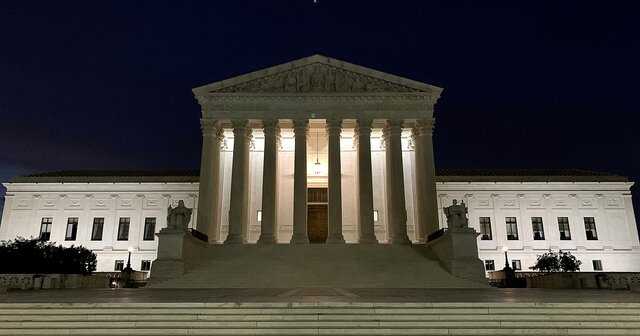

This article originally appeared in the Detroit News April 8, 2024.
Ask a parent what she’s willing to do to secure a quality education for her child.
The answer is likely to be, “Almost anything.”
For five Michigan families, that includes taking a case to the U.S. Supreme Court. An appeal filed last week seeks to invalidate a state constitutional provision that restricts the use of public funds for private education. If the Supreme Court agrees to hear the case, it would expand educational options for families in the state.
Jessie Bagos is one of the plaintiffs. Her twin sons entered kindergarten during the 2020-21 school year, in the middle of the COVID-19 pandemic. Two weeks before school started, the district decided to cancel in-person classes.
“If I could have afforded it, we would have gone to a private school, and they would have had a normal kindergarten year,” said Bagos. “Instead, they had to do computers. It was just a struggle, and it was very sad to see. They hated it. They cried every morning. They didn’t like learning anymore, and it was heartbreaking to see.”
In the aftermath of the pandemic, many states recognized the need for innovation. Twenty-nine states created or expanded education choice programs, according to EdChoice, an organization that helps families find the schooling environment that best fits their needs.
Michigan did not join those states for two reasons. The first is a lack of political leadership. In 2021, Gov. Gretchen Whitmer vetoed a $155 million program that would have provided $1,000 per student for tutoring and reading programs. Later that year Whitmer vetoed a tuition scholarship program designed to aid Michigan’s neediest families. Last year the Legislature weakened school accountability and the teacher evaluation process.
The other reason Michigan is falling behind is structural. A state constitutional provision prohibits the direct or indirect use of public money for nonpublic schools. This 1970 provision was modeled on the so-called “Blaine Amendment.”
In 1875, Maine Congressman James G. Blaine proposed an amendment to the U.S. Constitution that would have barred government funding of sectarian schools. Consideration of the Blaine Amendment “arose at a time of pervasive hostility to the Catholic Church and to Catholics in general,” wrote Justice Clarence Thomas in a 2000 case. The federal amendment failed, but 37 states adopted similar provisions.
Michigan’s amendment was animated by the same discriminatory intent. Opponents of funding for nonpublic schools formed a ballot committee called the Council Against Parochiaid. The public advocacy for the amendment made clear it was aimed at restricting religious schools. (At the time, the majority of private school students were enrolled in Catholic schools.) Michigan voters approved the measure in November 1970.
The U.S. Supreme Court has addressed this intersection of public education and religious discrimination in a trio of recent cases. In Trinity Lutheran (2017) the court said a Christian preschool was eligible for a state grant to improve playground safety. In Espinoza (2020) the court held that once a state decides to fund private education, “it cannot disqualify some private schools solely because they are religious.” In Carson (2022) the court said states may not bar parents from choosing religious education options through a state tuition program.
Coinciding with post-pandemic demands from parents, these cases have allowed most states to innovate with new educational models. But because Michigan’s constitution is written in a seemingly neutral way — it does not single out religious schools — the recent Supreme Court cases don’t offer immediate help for Michigan families who want to get their kids into great schools.
Michigan school performance is troubling. The latest scores from the National Assessment of Educational Progress ranks us 40th in the country in reading and 35th in math. Statewide standardized testing in 2023 continues to show learning losses.
This is why Bagos and her fellow parents are suing the state of Michigan. They are asking the Supreme Court to decide whether Michigan’s Blaine Amendment, with its well-documented religious animus, violates the federal Equal Protection Clause.
A quality education is one that equips students with the knowledge and skills to succeed in life. A high court victory would give families more options for doing this.
Permission to reprint this blog post in whole or in part is hereby granted, provided that the author (or authors) and the Mackinac Center for Public Policy are properly cited.
Get insightful commentary and the most reliable research on Michigan issues sent straight to your inbox.


The Mackinac Center for Public Policy is a nonprofit research and educational institute that advances the principles of free markets and limited government. Through our research and education programs, we challenge government overreach and advocate for a free-market approach to public policy that frees people to realize their potential and dreams.
Please consider contributing to our work to advance a freer and more prosperous state.

Donate | About | Blog | Pressroom | Publications | Careers | Site Map | Email Signup | Contact